Undoubtedly, the new media, represented by the various social platforms, such as Facebook and Twitter, has become the nightmare of many governments around the world, especially repressive governments whose repressiveness thrive in opaqueness. What is to such governments, a problem, has given a voice to the populace, especially young people, so much so that for good or bad, the new media has revolutionalised the media space with concomitant impact on the freedom of expression, recognized in both constitutional and international bills of rights. We cannot however ignore the duty on governments to responsibly balance the freedom of expression of the citizens against the need to protect members of the public and indeed the society from the harmful effects of social media, provided such balancing is not intended to repress opposing views. In the case under review, the ECOWAS Community Court of Justice was invited to determine whether the ban of Twitter by the Nigerian Government achieved that balance.
The importance of the Court’s judgment in this case lies in its unequivocal indication that the Court would not stand on the side of repressiveness nor will it fail to uphold a necessary regulation for the protection of the rights of members of society and the sustenance of societal cohesion, provided the regulation is not done in an arbitrary manner. The fact remains that free speech is not free!
Brief Facts of the Case
Sometimes around the 4th of June, 2021, the Federal Government of Nigeria announced the suspension of Twitter on the ground that it poses a threat to National Security, alleging that it (Twitter) was involved in, or sponsored, the ENDSARS protest that swept through Nigeria in 2020. The ENDSARS protest was organized by young people to protest police brutality, in particular, and bad government, in general. In consequence, an NGO, the Socio-economic Rights and Accountability Project (SERAP) and 3 others (the “Applicants”) approached the ECOWAS Court, praying, inter alia, that the Court declare the ban of Twitter illegal and a violation of the fundamental right to freedom of expression and thus violated article 9 of the African Charter on Human and Peoples’ Right (“ACHPR”), article 19 of International Covenant on Civil and Political Right (ICCPR), among others.
The reliefs sought by Applicants before the Court were for:
- A declaration that the act of the Respondent and its agent suspending the operation of Twitter or any other social media and microblogging application without an order of a competent Court of jurisdiction is unlawful, inconsistent and incompatible with Nigerian human rights obligations and amount to breach of the right to freedom of expression, access to information and media freedom guaranteed under Article 9 of the ACHPR and Article 19 of the ICCPR.
- A declaration that the act of the Respondent in mandating its agent to commence and continue to regulate the social media in Nigeria amounts to restriction and censorship, thus constituting violation of the international human rights and Nigeria’s obligations under the ACHPR and Article 19 of the ICCPR.
- A declaration that the act of the Respondent and its agents suspending the operation of Twitter or any other social media and microblogging application in Nigeria without any offence known to law is incompatible with Article 9 of the ACHPR and Article 19 of the ICCPR and are therefore null and void to the extent of their inconsistency and incompatibility.
- A declaration that the directive of the Respondent, through the National Broadcasting Commission, directing and ‘advising media houses to deactivate their Twitter accounts and discontinue its use is a breach of the citizen’s right to freedom of expression, access to information as well as media freedom guaranteed under Article of the ACHPR and Article 19 of the ICCPR and therefore, null and void.
- A declaration that the act of the Respondent to frequently threaten the Applicant and other Nigerians to make use of Twitter and/or other social microblogging applications with criminal prosecution and the actual act of suspending the operations of Twitter in Nigeria, violates the principle that there is no punishment without law, and the right to fair hearing, guaranteed under the African Charter on Human and People’s Rights and International Covenant on Civil and Political Rights and therefore, null and void.
- An order setting aside the suspension, ban, sanction or other punishments whatsoever imposed on Twitter and/or any other social media service providers by the Respondent and its agents.
- An order directing the Respondent and its agents to immediately revoke, withdraw and/or rescind its suspension of Twitter and/or any other social media service provider in Nigeria in line with the Nigerian obligations under international human rights law especially Article I of the African Charter on Human and People’s Rights, the International Covenant on Civil and Political Rights and the Revised Treaty of ECOWAS 1993.
- An order of perpetual injunction restraining the Respondent and its agents from unlawfully imposing sanctions and punishment or doing anything whatsoever to harass Twitter and/or any other social media service provider(s), media houses, radio and television broadcast stations, the Applicant and other Nigerians who are Twitter users, in violation of the African Charter on Human and People’s Rights and the International Covenant on Civil and Political Rights.
- Such further orders the Honorable Court may deem fit to make in the circumstances of the suit.
On its part, the Respondent challenged the suit, inter alia, on the ground that “Twitter is being used by separatist leader who has perpetrated acts of violence against Nigerian soldiers and policemen, Government structures and sovereignty”. The Respondent further argued that suspending Twitter was for the social blogging platform to comply with the extant laws of the country and therefore not a violation of fundamental Right to freedom of expression.
It is important to say that the Court neither granted the Applicants’ request that the ban on Twitter be lifted before the substantive hearing, nor did it uphold the Respondent’s challenge to its jurisdiction to hear the Application.
The Decision of the Court.
The decision of the Court revolved, inter alia, around: (a) whether access to Twitter and information and media is a right; (a) whether Twitter is a relevant platform to the enjoyment of the right to freedom of expression; (c) whether the suspension violated the Applicants’ guaranteed rights under the ACHPR and ICCPR; (d) whether the government’s intention to regulate the social media space contravened articles 9 and 19 of the ACHPR and the ICCPR, respectively, and thus violates the right to freedom of expression, access to the media and Information; and (e), the legality of the Respondent’s act of suspending the operations of Twitter.
On the intended regulation of the social media, the Court declared that the freedom of speech guaranteed in articles 9 and 19 of the ACHPR and the ICCPR, respectively, is not a stand-alone freedom, but one complimented by the right to access information, which the Court considered a derivative right (Para 67). In categorical terms, the Court was of the firm view that:
… access to Twitter, being one of the social media of choice to receive, disseminate and impart information, is one such derivative right that is complementary to the enjoyment of the right to freedom of expression, pursuant to the provisions of Article 9 (1) & (2) of the ACHPR and Article 19 of the ICCPR. Consequently, to derogate from such a right requires lawful justification either by means of an existing law, by Court order, or otherwise in order to justify such derogation failing which the court will find that resting such access will amount to violation of the rights to access information and the media platform and the court so holds. (Para 68)
On the relevance of Twitter to the enjoyment of the freedom of expression, the Court reasoned that article 9(1) of the ACHPR created an ancillary right to receive information, while article 9(2) created the right to express and disseminate information within the law, and affirmed that the right could be exercised on: (i) the internet; (ii) print media or electronic media, which includes twitter; and (iii) work of art. (Para 69). The Court, and rightly too, took judicial notice that Twitter has become one of the most usable or user-friendly platforms through which opinions, ideas, and views are expressed, imported, received, and/or disseminated. (Para 70).
The Court therefore had no difficulty taking judicial notice that Twitter has become one of the platforms through which the freedom of expression is exercised, in that Twitter is one of the vehicles provided by modern technologies by which the enjoyment of the right to free speech has been exercised. (Para 71). Twitter, in the opinion of the Court, is therefore relevant to the attainment of freedom of expression. (Para 71).
Accordingly, the Court held:
Therefore, Twitter is of much relevance in the attainment of the intended objectives of articles 9 of the ACHPR and Article 19 of the ICCPR and in like manner, relevant in the enjoyment of the exercise of the right to freedom of expression. Any act that restricts the rights guaranteed under the provisions of the ACHPR and ICCPR will be deemed to be inconsistent with the provisions of the said article. (Para 71).
On whether the suspension of Twitter by the Respondent violated the Applicants’ rights, the Court could not hold otherwise as the materials and evidence placed before it gave no room for placing its imprimatur on the Respondent’s action. The Court was categorical in holding that only a Court order or an existing law authorising the suspension would sway its judgment in favour of the Respondent. (Para 75-76).
On the legality of the suspension, the Respondent drew the attention of the Court to the provisions of its constitution and some other of its municipal laws. The Court noted the Respondent’s argument and even agreed with it regarding the fact that the freedom of expression is not absolute, it nevertheless insisted that failing a Court judgment or a specific piece of legislation, the suspension is illegal. (Para 81, 83). For the avoidance of doubt, the Court stated:
In situations, such as the instant case, the only feasible scenario for derogation, in the considered opinion of the Court, is simply that it has to be done in accordance with the law. This means there must be in existence a national legislation granting and authorizing the exercise of such rights and at the same time providing the conditions under which it can be derogated from failing which the exercise of such power would be frowned at by the Court as an act of illegality.
Consequently, the Court declared the suspension of Twitter and all other consequential acts done pursuant to the suspension unlawful, illegal and inconsistent with articles 9 and 19 of the ACHPR and the ICCPR. (Para 89).
Based on the above reasoning of the Court, it declared, inter alia, that (a) the Respondent’s act of suspending the operation of Twitter is unlawful and inconsistent with the provisions of article 9 of the ACHPR and Article 19 of the ICCPR; (b) the act of the Respondent in suspending the operations of Twitter violates the Applicant’s rights to the enjoyment of freedom of expression, access to information and the media contrary to the provisions of article 9 of the ACHPR and Article 19 of the ICCPR the same having been violated. These were followed with the consequential orders that: (a) the Respondent lift the suspension of Twitter, the same being in contravention of Article 9 of the ACHPR and Article 19 of the ICCPR; (b) the Respondent takes necessary steps to align its policies and other measures to give effect to the rights and freedoms enshrined in the ACHPR and ICCPR.
It is easy to say from the reasoning and the overall circumstances of the case that the reasoning of the Court on the merit of the case is unassailable and commendable. To have placed its imprimatur on the action of the Nigerian government would simply have been a carte blanche for the arbitrary exercise of executive powers. No society with its democratic credentials, as the ECOWAS Community seeks to attain through its article 3(j) of the Economic Community of West African States (ECOWAS) Revised Treaty, 1993, and its Protocol A/SP1/12/01 on Democracy and Good Governance, would celebrate the reckless disregard of the rule of law and democratic tenets exhibited by the Nigerian Government in the reasons for, and the manner in which it placed, the ban.
There however was an aspect that the Court could have provided more clarity, albeit, obita. That is the aspect relating to one thing that cannot escape notice in the judgement, which is the several references to the lack of a law authorizing the ban. Would that have been that any law would have sufficed for that purpose? For completeness, the Court should have pronounced on the extent of derogation that the Court would be prepared to accept in any law, had the Respondent tendered any. If for, instance, the Respondent tendered a law made pursuant to section 45 of its Constitution – the Constitution of Federal Republic of Nigeria, 1999, which permits derogation by a law reasonably justifiable in a democratic society, what “democratic society” yardstick would the court have used? Would the court simply have accessed the situation from the factual happenings within the Nigerian society alone or would it have situated it within the context of the ECOWAS Protocol A/SP1/12/01 on Democracy and Good Governance? The importance of these queries lies in the fact that, as a tribunal of international law, the court is an organ of international law, which is the law the Court is called upon to apply, as clearly provided for in article 20 of the (A/P.l/7/91) Protocol of the Court (as amended), and as judicially affirmed in Certain German Interests in Polish Upper Silesia (PCIJ, Series A, No. 7, p. 19). Accordingly, the Nigerian Constitution becomes merely part of the facts that the Court would be adjudicating upon in obedience to article 27 of the Vienna Convention on the Law of Treaties, 1969, as even long established in precedent from the time of Alabama Claims Arbitration (1872) 1 Int. Arbitration, 495.
The Court is thus entitled to take the strict view that a law made pursuant to the clawback provisions of section 45 of the Respondent’s Constitution would be material to the case if and only if the provisions of the law coincide with similar provisions in the ACHPR and ICCPR, which were copiously relied upon by the Court.
Reparation and Cost
Two other areas of interest to us are the decision of the Court on reparation and cost. Expectedly, having received a favourable verdict, it is legitimate to expect that reparation would naturally follow. This was not to be, as the Court correctly assessed the situation to come to the conclusion that reparation must be warranted by a reparable injury and that cost must follow events.
The Applicants had prayed the Court for a reparation of the sum of Five Hundred Million Naira (N500,000,000), and costs of Ten Million Naira (N10, 000, 000). The Court outrightly refused to award any compensation. It also refused the sum claimed as cost and directed the Deputy Registrar of the Court to assess the costs due the Applicants.
This is a sensible approach to compensation and cost. Applicants before the Court, especially in a public interest case as this, should not put themselves forward as compensation seekers, nor should Applicants in general seek to turn litigation in the Court into a money-making venture. The Court, being a Court of justice and one which has no means of enforcing its judgment against States, must, as it did in this case show at all times that it is after the justice of cases submitted to it. Where the justice of a case requires compensation to be awarded, the Court has never shied away from doing that, though questions have been raised as to whether the Court had not been overly generous in the award of compensation in some cases. On the other hand, where, as is this case, the justice of the case does not require compensation, the Court should send that message to Applicants loud and clear, as it did herein.
There is the need for ECOWAS citizens, particularly applicants, to understand that a finding of violation of international law against a State by an international court is a big deal, as the State, which will be seen in the comity of nations as a lawless State, should not be made to pay twice over, except, of course, where there is a compensatory harm done to an individual(s). Indeed, the repeated view of the Court in the instant case that the suspension was done, neither by the sanction of a court of law nor by any legislation, was that of clear executive lawlessness and rascality against the Nigerian Government. In fact, a responsible government that understands its domestic obligations to its laws and its citizens; and its international obligations to the comity of nations, would have, for its image sake, quickly lifted the ban and render the case academic before the case progressed to merit hearing. By so doing, it would have sort of arrested the case and avoided being so badly tainted. It is expected that the government would be better advised should a case that had so wide an international interest and ramifications happen in future.
It is worth concluding that it is not possible to gauge how the respondent government would have responded to this judgment, as Twitter ban was lifted on13 January, 2022, while this judgment was delivered on the 14th day of July, 2022.
Chinyere Onyeneke, LLB, BL
Barrister & Solicitor of the Supreme Court of Nigeria
Western Union Global Scholar (2019/2020)


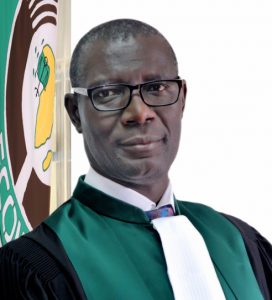


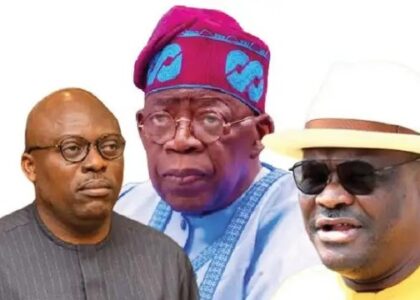
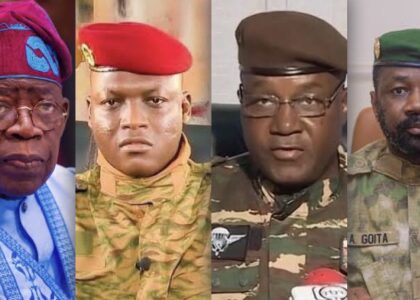
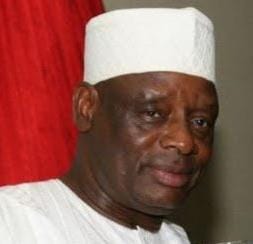
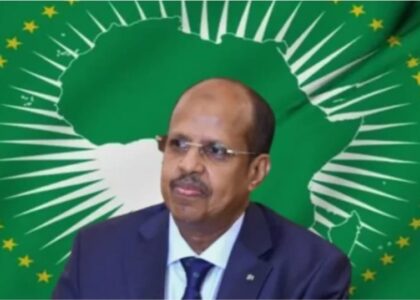
Thanks for the post
_________________
ipl 2022 app tv
thanks, interesting read
very good
_________________
https://bdsports.fun
interesting news
_________________
ক্রীড়া পণ
interesting post
thank you very much
_________________
f1 casino бездепозитный бонус зеркало